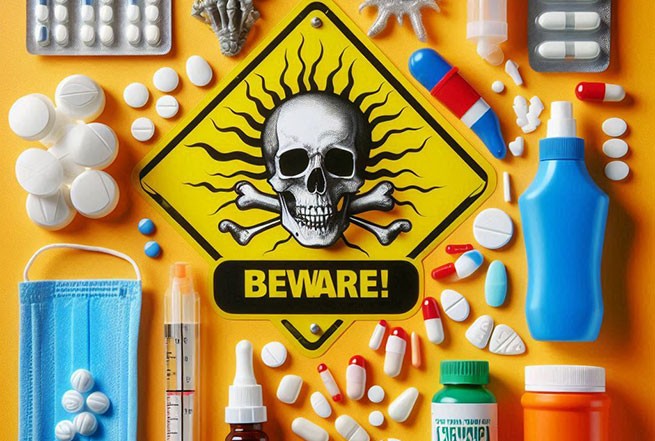An American expert says that certain medications (prescription and over-the-counter) can increase skin sensitivity to the sun and the risk of sunburn.
According to the deputy director of emergency medicine at Northewell Hospital on Long Island, the greatest danger is from medications taken over a short period of time. As he explains, “medications taken for a short time are those that our body is not used to. Those who take medications for a long time have probably already been in the sun and know whether they have an increased risk of burning.”
For example, isotretinoin, prescribed for acne, is a long-acting drug that increases photosensitivity. Dozens of other long-term medications can cause the same side effect, including:
- to lower cholesterol (eg, simvastatin, atorvastatin, lovastatin, pravastatin)
- oral contraceptives
- Oral antihistamines, phenothiazines (these are sedative/antiemetic drugs such as chlorpromazine, fluphenazine, etc.)
- psoralens (for the treatment of psoriasis, eg methoxsalen)
- sulfonylureas (for diabetes)
- antibiotics and anti-inflammatory drugs.
But people taking medications for an acute health problem usually don't think about the possibility that they may cause photosensitivity, the expert notes. This category includes some antibiotics, such as doxycycline, fluoroquinolones (such as ciprofloxacin), and sulfonamides.
Photosensitivity can also be increased by some over-the-counter anti-inflammatory drugs. Patients are unaware that they can cause sunburn because they do not ask their doctor before taking them. Especially at this time of year, when we become more active, patients may self-administer medications such as ibuprofen, naproxen, celecoxib, etc. If you are taking such drugs, it is advisable to protect yourself from the sun, the expert recommends. This is because no one can know in advance whether your skin may become sensitive to the sun and to what extent.
“Each person has a different reaction to melanin production and direct sun exposure, – he says. – Some people may have a reaction to the slightest exposure. Others may feel nothing at all.”
Some diuretics (such as thiazides), which are often prescribed for hypertension, may also increase the risk of sunburn. They also increase the risk of an additional problem: dehydration. These drugs stimulate urine production to lower blood pressure. However, hot weather also increases sweating, increasing the risk of dehydration.
To protect yourself, consult your doctor about the amount of fluid you need. If you have a sunburn, you also need to keep your body in good condition, says Dr. Davis.
Other medications that can increase photosensitivity are some antifungals, antihistamines (for allergies), and even alpha hydroxy acids (AHAs) in cosmetics. However, none of this means that everyone who takes these drugs will necessarily experience a photosensitivity reaction. This also does not mean that if you have it once, it will definitely happen the next time you take these drugs.
Just in case you are taking medication, try to avoid going out in the sun during the hottest hours. Also, always use sunscreen and reapply it every two hours. Lastly, don't forget a hat and sunglasses.







More Stories
Diabetes: How much does risk increase for those who sleep in bright light at night?
Red Eyes: Learn about the 15 Most Common Causes
Those who drink water from plastic bottles have an increased risk of developing type 2 diabetes